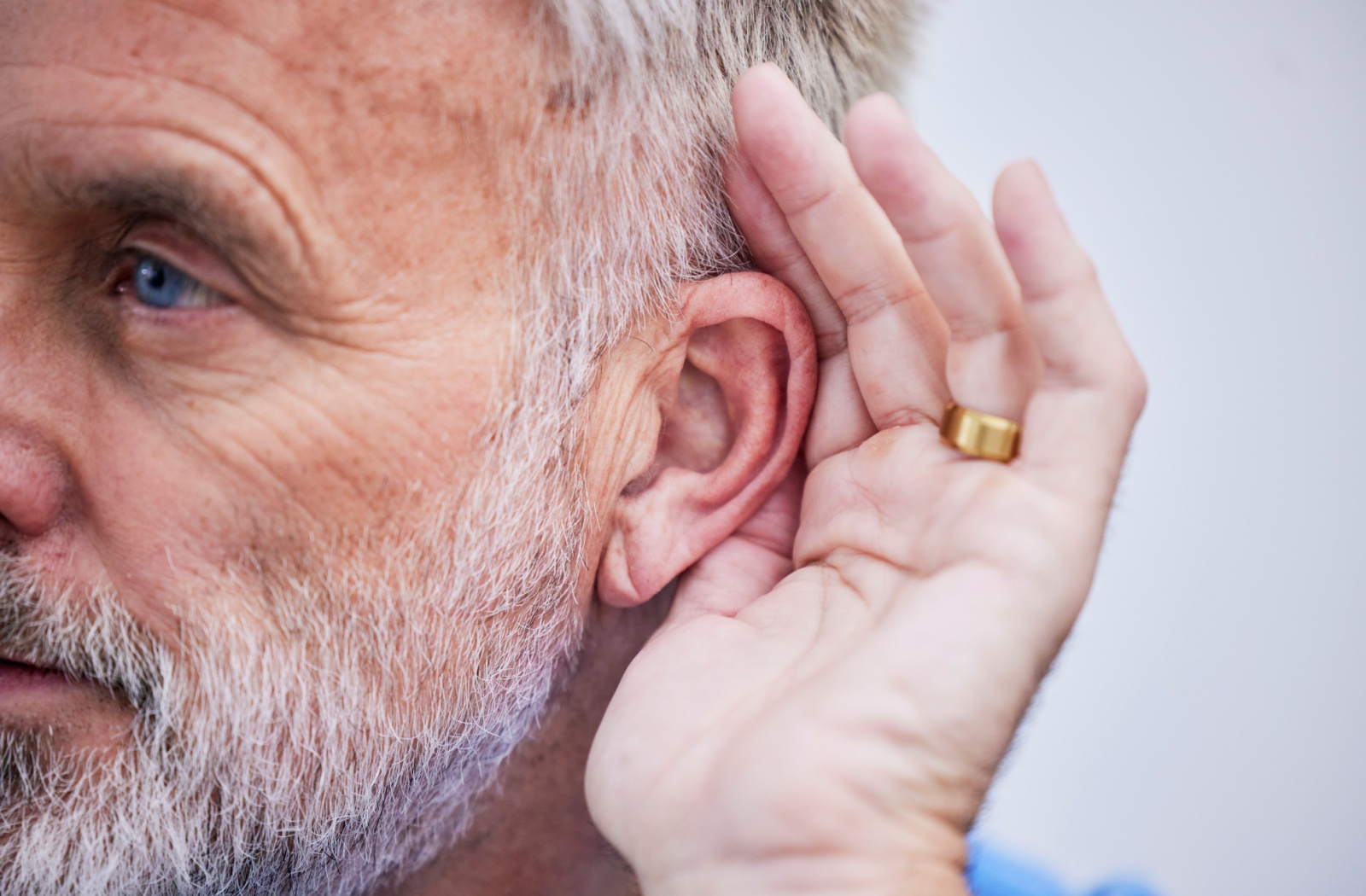Hearing loss affects millions of older adults, yet many don’t fully understand its impact or how to address it. If you or a loved one has noticed changes in your hearing, you’re not alone. Understanding hearing loss can help you make informed decisions about care and treatment.
Early intervention is key—untreated hearing loss can lead to social isolation, cognitive decline, and reduced quality of life. Recognizing early signs can help you and your family explore solutions that can improve your quality of life.
What Is Hearing Loss?
Did you know nearly one in three people over 65 experiences some degree of hearing loss? Hearing loss occurs when any part of your hearing system doesn’t work correctly. This can range from mild difficulty understanding conversations in noisy environments to complete inability to hear sounds. The condition affects how sound waves travel through the ear and are processed by the brain.
Types of Hearing Loss
There are three main types of hearing loss that seniors may experience:
- Conductive hearing loss happens when sound can’t reach the inner ear properly. It’s often caused by earwax, fluid in the middle ear, or issues with the tiny ear bones. Many cases can be treated medically or surgically.
- Sensorineural hearing loss is caused by damage to the inner ear or the nerve pathways leading to the brain. It’s common in older adults and usually develops gradually. While permanent, hearing aids can often help.
- Mixed hearing loss combines conductive and sensorineural issues. Treatment depends on which is more severe.
Understanding the different types of hearing loss is crucial for identifying the most effective treatment and enhancing overall quality of life.
Common Causes of Hearing Loss
Hearing loss in seniors is often caused by age-related changes, known as presbycusis, which affect the tiny hair cells in the inner ear that convert sound into signals for the brain. Other causes include prolonged noise exposure, certain medications, ear infections, and medical conditions such as diabetes or high blood pressure. Even earwax buildup can lead to temporary hearing issues.
Signs of Hearing Loss
Early detection of hearing loss is crucial for better treatment outcomes. Many people may not notice the gradual changes in their hearing. Here are some common signs to look out for:
- Frequently asking others to repeat themselves.
- Turning up the volume on the TV or radio.
- Struggling to follow group conversations.
- Difficulty hearing in noisy environments.
- Sounds seem muffled or unclear.
- Trouble hearing higher-pitched voices, like those of women and children.
If you recognize these signs in yourself or someone else, don’t wait to seek help. Early action can make a big difference in maintaining your hearing and quality of life.
At What Age Does Hearing Start Deteriorating?
Hearing changes can begin as early as age 40, but significant hearing loss is more common after the age of 65. Approximately one in three people aged 65-74 experience hearing loss, and this increases to nearly half of those over 75, according to the National Institute on Deafness. Progression varies—some notice changes in their 50s, while others maintain good hearing into their 80s. Regular hearing checks can help monitor changes.
Health Effects of Hearing Loss
Hearing loss doesn’t just affect your hearing—it can impact your overall health and well-being. Here’s how untreated hearing loss can have wider effects:
- Social isolation: Difficulty hearing can make conversations hard, leading to withdrawal from activities and relationships, which may cause depression or anxiety.
- Cognitive decline: Studies have linked untreated hearing loss to cognitive decline, although further research is needed.
- Safety risks: Failing to hear alarms, vehicles, or calls for help can increase danger.
- Balance issues: Hearing loss can affect balance, as the inner ear plays a crucial role in maintaining balance and stability.
Caring for your hearing is about more than sound—it’s about protecting your quality of life and staying connected.
How to Slow Hearing Loss
Hearing changes are a natural part of aging, but there are ways to protect your hearing and slow further loss. Here are some tips to maintain hearing health:
- Protect your ears from loud noise: Use earplugs or noise-cancelling headphones in noisy environments. Follow the 60/60 rule—keep headphone volume under 60% and limit use to 60 minutes per day.
- Clean your ears carefully: Avoid cotton swabs in the ear canal, as they can push wax deeper or cause damage. Instead, clean the outer ear with a washcloth.
- Take care of your health: Conditions such as diabetes and heart disease can impact your hearing. Exercise, eat a healthy diet, and avoid smoking to support your hearing.
By adopting these habits, you can protect your hearing and enjoy the sounds that bring joy to your life.
Devices to Help with Hearing Loss

Hearing aids have revolutionized the way people with hearing difficulties, especially seniors, reconnect with the world around them. These small electronic devices amplify sound, making communication easier in various environments.
Hearing aids work by capturing sound through a microphone, which then amplifies the sound. The amplifier increases the sound’s volume, making it easier to hear. Finally, the sound is delivered directly into the ear through a speaker, helping individuals hear more clearly.
- Types of Hearing Aids:
- Behind-the-ear (BTE): Sits behind the ear, ideal for severe hearing loss.
- In-the-ear (ITE): Fits in the outer ear, offering a discreet option.
- Completely-in-canal (CIC) & Invisible-in-canal (IIC): Small, nearly invisible devices that sit deep in the ear canal.
With a variety of styles and features, hearing aids can be customized to suit individual needs and preferences. They empower users to regain confidence and stay connected to the people and sounds they value most.
Taking Action for Better Hearing Health
Fleming Farms Senior Living knows that hearing loss doesn’t have to limit your ability to stay connected with family and friends or enjoy the activities you love. Understanding your options and taking proactive steps can help you maintain your quality of life and independence.
Contact us today to discover how our community utilizes technology to support seniors with hearing loss, enabling you to continue engaging fully in conversations, relationships, and activities that bring meaning to your life.









